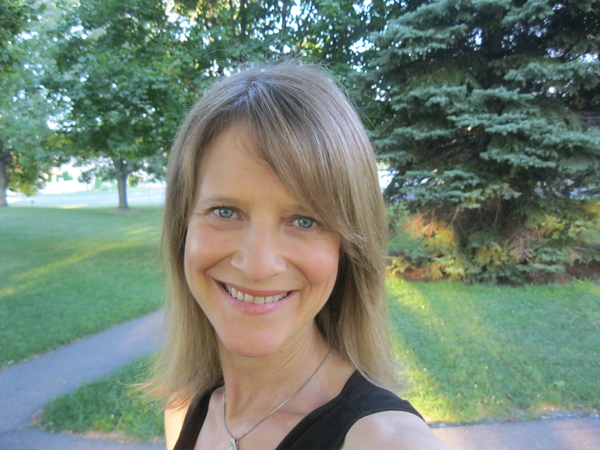
By Neale McDevitt
For the cynics among us, the term ‘mindfulness’ evokes feelings of derision and dismissiveness. Our vague understanding of the word conjures up images of a long-bearded yogi sitting cross-legged on a mountain peak, lost in endless meditation. “It must be nice to meditate all day,” we sneer, “too bad I have answer my emails before I leave work, make dinner for the family, drive my daughter to soccer and finish a report for tomorrow morning.”
And that, says Gina Rubinsky, is the very crux of the modern person’s dilemma – we are too preoccupied by what we have to do today, tomorrow and a week from now, to allow ourselves the time to embrace the present moment. The here. The now.
“People are constantly distracted – distracted by the future, distracted by past, distracted by technology. So much so that many people aren’t really grounded in the present time,” says Rubinsky, a registered psychologist, certified Kripalu yoga instructor who specializes in mindfulness-based stress and pain reduction. “We need to wake up to the present moment and be aware of what is going on at all levels of our being – our thoughts, our emotions, the sense of our body. We need to be more mindful.”
On May 9, as part of National Mental Health Week, Rubinsky will deliver a lunchtime workshop for faculty and staff titled Mindfullness Based Stress Reduction and it Relevance in our World. During the workshop, Rubinsky will discuss the many benefits of leading a more mindful life and will lead participants through a guided mediation exercise that will teach them how to focus on the here and now.
“A lot of people are living on automatic pilot and the first step to mindful living is the realization that you don’t want that any more,” says Rubinsky. “But that’s just the beginning. Mindfulness must be cultivated. Just as we train our bodies, our mind is also in need of training in order to come to that place of present moment awareness.”
While that mindfulness training can come in many forms, for purposes of the May 9 workshop, Rubinsky will focus on meditation. “We already know that meditation has wonderful physiological benefits like decreased pulse rate, decreased blood pressure, improved sleep and decreases in anxiety and depression,” says Rubinsky. “But we want to use it to come into the now.”
Rubinsky will instruct participants to focus on one thing – often their breathing – while they meditate. The hard part, she says, is to keep that focus. “It can be frustrating because thoughts are extremely seductive, and we live incredibly busy lives that are hyper-stimulated by technology and commitments and demands and pressures both internal and external,” says Rubinsky. “It is very tempting to move in the direction of where the mind wants to go. But every time the mind begins to wander, we must bring our attention back to that one specific object of awareness. In the process of doing that we’re retraining the mind to come home to what is and to come home to the present moment.”
But even the task of focusing on one’s breathing is fraught with distractions. Most people new to meditation will start to think about their breathing – “I should breath more deeply,” “I breath too quickly,” etc. Instead, they should be concentrating on sensations like the rise and fall of the abdomen and the slight heat they feel in their belly with each breath. “Only when we are free of the thinking mind – and all the stories and commentary that comes with it – are we truly open to the moment,” she says.
Rubinsky says one of the great benefits of mindfulness is an increased ability to respond to stressful situations. Too often, people avoid dealing with such situations by distracting themselves. They surf the net, they watch TV, they check their emails and, in more severe cases, they turn to drugs and alcohol. And while all of these can help alleviate immediate anxiety and stress, the respite is short-lived.
“It is a false refuge because it is just a quick fix. You aren’t really confronting things,” says Rubinsky. “The only way to really move through anything that is difficult is to be present with it.
“For example, if you are worried about a family member who is ill, just being able to name the emotions – like anxious or upset – will decrease your stress levels, and studies have shown this,” she says. “That is one of the chief benefits of mindfulness.”
The beauty of meditation, says Rubinsky, is that the mindfulness learned through it will have a positive impact on the rest of a person’s life. “There’s a definite overflow. As you meditate and the mind is trained to be in the present time, it will start to translate into your experience with people and your experience with yourself as you move through your daily life. That’s the magic,” she says. “We have an expression; ‘mindfulness on the meditation cushion, and mindfulness off the meditation cushion.’ That’s the essence of what I do – to give people tools to be relaxed and mindful, not just for 30 minutes a day, but throughout their life.”
For more information on the May 9 workshop and to register, go here.
For more information of Gina Rubinsky and her work, go here.
